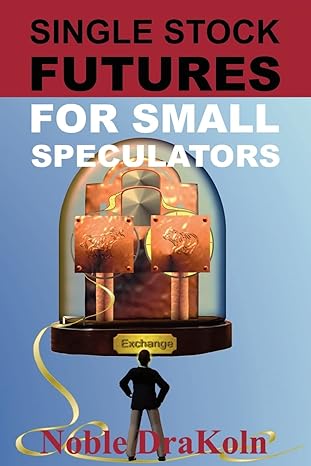Question
For the last two decades, officers and directors at U.S. public companies seeking to trade illicitly on inside information had an almost infallible get-out-of-jail-free card.
For the last two decades, officers and directors at U.S. public companies seeking to trade illicitly on inside information had an almost infallible get-out-of-jail-free card. All they had to do was use prearranged trading plans when they bought and sold their companies' shares. The odds that the government would target them for enforcement actions were slim. It was an unintended consequence of a regulation adopted in 2000 called Rule 10b5-1 that some executives abused academic research shows. That regime is about to change. (Please refer to the WSJ article" "New SEC Rules Target Corporate Insider Trading")
Insider trading is the buying or selling of a publicly traded company's stock by someone who has non-public, material information about that stock. Where would you draw the legal and ethical lines on when trading should be considered fair and when it should be considered illegal/unethical?
Step by Step Solution
There are 3 Steps involved in it
Step: 1

Get Instant Access to Expert-Tailored Solutions
See step-by-step solutions with expert insights and AI powered tools for academic success
Step: 2

Step: 3

Ace Your Homework with AI
Get the answers you need in no time with our AI-driven, step-by-step assistance
Get Started


